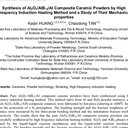Effects of glutamine on cytokines 1L-1 and TNF-α in rehabilitation and prognosis of patients with lobectomy.
Parole chiave
Astratto
This study was designed to investigate the effects of glutamine on cytokines 1L-1, TNF-α and prognosis of patients with lobectomy in the process of postoperative rehabilitation. A total of 78 patients with lung cancer who underwent lobectomy from January 2015 to January 2017 were selected in Daqing Oilfield General Hospital (Daqing, China). Patients were randomly divided into two groups, 39 patients in each group. Patients in the control group were treated with conventional treatment, while patients in the observation group were treated with both conventional and glutamine treatment. The levels of TNF-α, endotoxin, serum IL-1, IL-10, IL-15, IL-18 and intercellular adhesion molecule-1 (ICAM-1), myeloperoxidase (MPO) activity, incidence of nausea and vomiting, pulmonary histopathological changes, prognosis, and rehabilitation (time in bed, hospital stay and lung function) were compared between the two groups. Within 1 year after treatment, most patients survived, except 2 patients in the observation group and 3 patients in the control group who died. The rate of postoperation infection in the observation group was slightly lower than that in the control group. After treatment, the levels of endotoxin and TNF-α in the observation group were significantly lower than those in the control group (p<0.05). After treatment, the serum levels of IL-1 and IL-10 were significantly higher and the serum levels of IL-15 and IL-18 were significantly lower in the observation group than those in the control group (p<0.05). The expression levels of ICAM-1 and MPO activity were significantly higher in the observation group than those in the control group (p<0.05). No significant difference in the incidence of nausea and vomiting was found between the two groups (p>0.05). The average postoperative bed rest and hospital stay in the observation group were significantly shorter than those in the control group (p<0.05). The levels of forced expiratory volume in 1 sec (FEV1), forced vital capacity (FVC) and peak expiratory flow rate (PEFR) in the observation group were significantly higher than those in the control group (p<0.05). The results indicated that glutamine treatment is effective in the postoperative rehabilitation of patients undergoing lobectomy. Glutamine can regulate the levels of IL-1 and TNF-α, improve lung function, shorten bed rest and hospitalization days, promote patients postoperative rehabilitation process, and improve patients quality of life.



